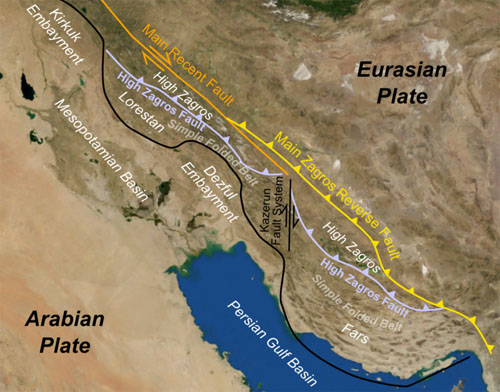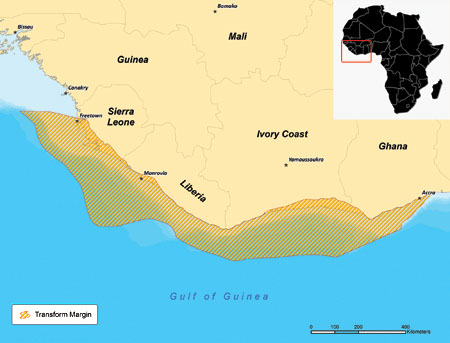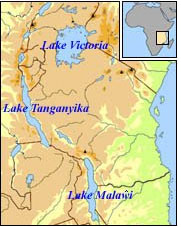The Energy Report: Let's start with Kurdistan, Lionel. It's one of the hottest countries in the world for oil and gas exploration, especially in terms of production share contracts. A few prescient firms, such as WesternZagros Resources Ltd. (WZR:TSX.V) and Genel Energy Plc (GENL:LSE) control promising properties in Kurdistan. What's the back story?
Lionel Therond: Prospects have never been better for players in Kurdistan. The key factor has been the recent entry of Turkey into the export debate. Allow me to explain: Turkey has an energy-hungry economy ready to buy oil and gas production directly from Kurdistan as long as the physical routes exist for exports. In response, the Kurdistan Regional Government (KRG) has started building pipelines toward Turkey, which should be operational at the end of 2013/early 2014.
"International majors are voting with their feet and entering Kurdistan."
That was a paradigm change. We had been waiting three years for an agreement between the KRG and the Iraqi federal government on the commercial conditions for exports, and Baghdad's initial stance was to declare all licenses in Kurdistan illegal. But with new export routes that could potentially bypass Iraqi territory and lead directly into Turkey, Baghdad's agreement is no longer necessary, which has brought the Iraqi government back to the negotiating table.
Meanwhile, poor returns on large oil field redevelopment projects in the south of Iraq are making projects in Kurdistan much more attractive in comparison for large international companies. Iraq's government had been saying, "If you go to Kurdistan, you won't be able to stay in Iraq." But the financial terms of these redevelopment projects were predicated on Iraq being able to export 12 million barrels a day at some point in the future and this is not going to be realized. Therefore, all of those projects are not economic anymore. International majors, from Marathon Oil (MRO:NYSE) to Exxon Mobil Corp. (XOM:NYSE), are voting with their feet and entering Kurdistan. Companies already there with good assets have a bright future. WesternZagros Resources is well positioned, as is Genel Energy. DNO International (DNO:OSE) and Gulf Keystone Petroleum Ltd. (GKP:LSE) also have interesting assets.
TER: What is the geological landscape of Kurdistan's oil resources?
"Kurdistan's oil fields are large anticlines that are part of the Zagros fault belt."
LT: All of the fields are very similar; they are large anticlines that are part of the Zagros fault belt [see image], which extends from southern Turkey into Iran. The reservoirs are mostly carbonates with low matrix porosity and permeability, hence the importance of the fracture system to improve reservoir characteristics. Predicting reservoir sweet spots is a challenge, while oil charge is a very low risk for any valid trap. Mind you, there have been some rare exploration failures, mainly related to poor trap definition. Otherwise, bad news generally relates to poor oil flow rates due to poorly developed fracture systems.

TER: Do companies have production-sharing contracts with the regional government?
LT: All the companies in Kurdistan are on production-sharing contracts awarded by the KRG. Due to a legislative vacuum in Baghdad, Kurdistan's government took charge of the management of the region's oil resources and started awarding licenses to international players in 2005.
TER: Under these international production-sharing contracts, what ratio of the output goes to the private firm and what percentage goes to the regional government?
LT: It depends on the generation of contracts. Obviously, the first entrants received better fiscal terms than the later entrants. But most of the oil goes to the state rather than to the contractor at about an 80/20 ratio. The net present value per barrel (bbl) varies between $3–5, which is quite stringent by global standards. But there are large accumulations and a lot of barrels to be found—that's the attraction.
TER: The oil comes out of the ground in Kurdistan and through pipelines to Turkey. What happens with the exports?
"There are large accumulations and a lot of barrels to be found in Kurdistan—that's the attraction."
LT: Due to disputes between the federal government and the regional government, exports from Kurdistan have had a very discontinuous history. At the moment, there is an agreement for oil to flow through the federal Iraqi infrastructure to a terminal in Turkey. Some oil from Kurdistan also finds its way into Turkey by truck. It is then exported broadly to international markets. China is a big investor in Iraq, but not so much in Kurdistan.
TER: Is there a minimum price per barrel of Brent that needs to be maintained to keep Kurdistan production profitable?
LT: Kurdistan has very low production costs and companies have been producing oil at less than $10/bbl. Hence, oil production is resilient at very low Brent prices.
TER: Your firm, Standard Bank, is one of the largest financial institutions in Africa. Which African countries are the best venues for energy resource exploration?
LT: Africa in general is very attractive, not only in the mature provinces, but also in the frontier provinces where new plays are developing. We tend to subdivide the continent into broad upstream themes.
For example, the West African transform margin [see image below] is a recently established province extending from Ghana to Morocco. The large Jubilee oil field is producing in Ghana and additional large developments will be coming onstream soon. Despite early successes in Ghana, there have not yet been any discoveries of similar size elsewhere in the region, even though some discoveries have been made in Sierra Leone and Liberia. West Africa holds a lot of exploration potential and a number of firms are deepening exploration in Sierra Leone, Liberia, Mauritania and Morocco.

Going down the coast, Nigeria is very interesting, in our view. Changes in the structure of the upstream industry there are opening up the field to local players. There are some very attractive investable entities in Nigeria, mostly listed on international markets.
"Tectonically, these two continents were attached before the Atlantic opened up. Brazil's success points to the potential of the African side."
Further down the continent are Cameroon, Gabon, Congo and Angola. These are established provinces, but they still provide exciting opportunities in deeper plays. The region's geological analogue is Brazil, where a lot of oil has been discovered below the thick salt layers present in the subsurface. Tectonically, these two continents were attached before the Atlantic opened up. Brazil's success points to the potential of the African side, where some exciting discoveries have already been made by companies like Cobalt International Energy (CIE:NYSE) in Angola, for example. Ophir Energy Plc (OPHR:LSE) has an exciting portfolio in offshore Gabon, for a company of its size.
Down in Namibia and South Africa, we find more frontier territories, poorly explored regions. This year, two dry wells were drilled in Namibia, which was disappointing. But I still think that there is potential in Namibia, with the presence of a mature source rock evidenced by the Kudu gas field in Namibia and discoveries in the North Falkland basin on the other side of the Atlantic, providing a good rationale for continuing exploration in the region. South Africa is not very well explored offshore, and there is a large potential for shale gas in the Karoo basin onshore. This is an untapped resource that will take a lot of time to develop, even after the political will to do so emerges. There are a lot of logistical and technical difficulties to overcome before producers there can replicate North American shale success. But the resources are there.
 Shifting focus again, the East African margin has been a focal point of late, with natural gas discoveries made in Mozambique and Tanzania, as well as in offshore Kenya, with volumes yet to be quantified by Apache Corp. (APA:NYSE). East Africa is an emerging gas province with large resources as well as some yet unproven oil potential. Across the Mozambique channel, there are about 20 billion barrels of oil sitting onshore in Madagascar. It's such a large area that there are plenty of opportunities for exploration.
Shifting focus again, the East African margin has been a focal point of late, with natural gas discoveries made in Mozambique and Tanzania, as well as in offshore Kenya, with volumes yet to be quantified by Apache Corp. (APA:NYSE). East Africa is an emerging gas province with large resources as well as some yet unproven oil potential. Across the Mozambique channel, there are about 20 billion barrels of oil sitting onshore in Madagascar. It's such a large area that there are plenty of opportunities for exploration.
And, let's not forget the East African lakes—a "new" hydrocarbon province established by oil discoveries in Uganda and more recently in Kenya, which has enormous oil potential. Geologically, there are other rift basins around the Great African Lakes waiting to be discovered, from the Democratic Republic of Congo to northern Zambia up through Tanzania, Kenya and Ethiopia.
Onshore rift basins of various ages are also present in other parts of Africa—Somalia, Sudan, Chad and Mali, to name just a few—and we have only scratched the surface in terms of their oil potential.
In short, the entire African continent will remain a really exciting place for oil and gas for the next decade or so.
TER: Are there any particular firms that you're following in the spaces we have discussed?
LT: We follow 17 stocks and the list keeps growing. I'm quite keen on the onshore East African plays in Kenya and Ethiopia with my favorite exposure being Africa Oil Corp. (AOI:TSX.V). Africa Oil is a highly leveraged instrument to that region's potential with a lower-risk profile, largely because Tullow Oil Plc (TLW:LSE) is operating the assets. Tullow has a wealth of experience in nearby Uganda and that gives me confidence that its explorations will be carried out smartly and efficiently.
The Nigerian local sector is providing a great investment opportunity. We are keen on companies such as Maurel & Prom Nigeria (MPNG:FP). And let's not forget Afren Plc (AFR:LSE), which has Nigerian exposure with a lot of added diversification in Kurdistan and East Africa. Afren is a good play throughout the continent as it is a stock with a good valuation and good leverage to exposure across these regions.
I'm keen on Mauritania and Morocco, the continuation of the West African transform margin play to the north; Morocco in particular, where the fiscal terms are very favorable for the industry.
I was disappointed by the dry well in offshore Namibia drilled by Petrobras (PBR:NYSE; PETR3:BOVESPA) in July/August, and also by the Mbawa-1 well drilled by Apache offshore Kenya, which was a gas discovery, but lacked oil.
That didn't fly very well for the shares of some of the companies involved and we saw some very dramatic share price corrections. But I believe the potential for oil discoveries still exists in offshore Namibia and Kenya. Watch this space.
Other companies worth watching are Kosmos Energy Ltd. (KOS:NYSE) and Tullow Oil. Both are exploring along the West African transform margin, which is quite a prospective area. Kosmos, in particular, has a lot of value potential.
TER: In the context of recent share price corrections, what are the prospects for junior firms working in Africa to raise working capital?
"The next 10 years will be quite exciting in terms of exploration and discoveries across Africa. There is still large, unexplored acreage remaining and some really good opportunities in the market right now."
LT: There was a drastic share price correction related to dry wells and exploration misses at potentially very high-impact wells. Some share prices have been impacted quite a bit. But in terms of raising working capital, the market still has an appetite for good exploration and production stories. Companies like Afren have been successful at raising debt and equity. A lot of debt has also been raised by firms that have acquired development assets in Nigeria. Gulf Keystone recently raised $300 million of convertible debt. Ophir has raised equity successfully a number of times in the past 18 months.
Obviously, the IPO market has been a bit quiet in the past few months. But a number of other companies have raised equity or are talking about raising equity to continue successful exploration and appraisal programs. Nevertheless, investors remain very cautious—more so than in the boom years, understandably.
TER: Do you have any thoughts about competition between Chinese interests in Africa and the more Western-oriented interests?
LT: Chinese companies tend to take a different view on the way they value opportunities. A Western company looks at an investment on a purely financial basis. State-supported Asian companies have more of a strategic angle regarding the premium they are prepared to pay for accessing production and reserves, which are higher than some other oil companies would consider.
TER: It sounds like now is a pretty good time for investors to get some bargains.
LT: I agree. The next 10 years will be quite exciting in terms of exploration and discoveries across Africa. There is still large, unexplored acreage remaining and some really good opportunities in the market right now.
TER: Thanks for your time.
LT: My pleasure.
Lionel Therond is the head of oil and gas research at Standard Bank. His 25 years of experience in this global sector combines upstream oil and gas industry and fund management expertise. Therond joined Standard Bank from Fox-Davies Capital, where he headed oil and gas sector coverage. Prior to that, he worked for JPMorgan Asset Management. Therond began his career at Royal Dutch Shell Plc as a geoscientist.
Want to read more exclusive Energy Report interviews like this? Sign up for our free e-newsletter, and you'll learn when new articles have been published. To see a list of recent interviews with industry analysts and commentators, visit our Exclusive Interviews page.
DISCLOSURE:
1) Peter Byrne of The Energy Report conducted this interview. He personally and/or his family own shares of the following companies mentioned in this interview: None.
2) The following companies mentioned in the interview are sponsors of The Energy Report: WesternZagros Resources Ltd.
3) Lionel Therond: I personally own shares of the following companies mentioned in this interview: None. I personally and/or my family am paid by the following companies mentioned in this interview: None. I was not paid by Streetwise Reports for participating in this story.


























































